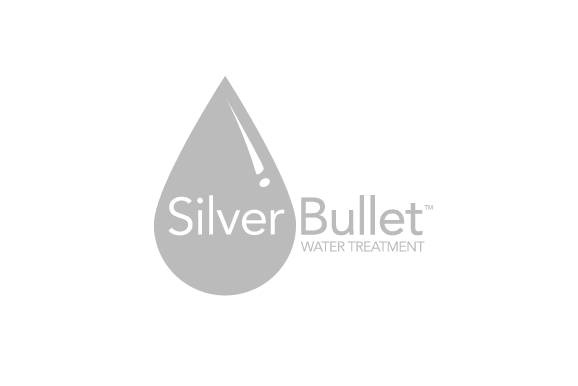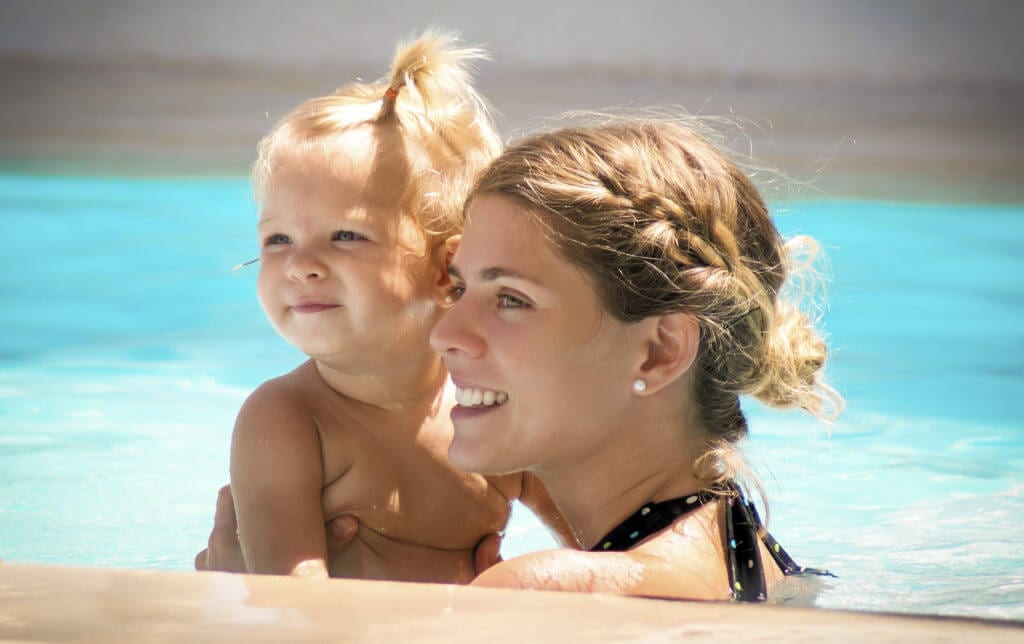What Is the Best Pool Sanitation System?
Dreaming of refreshing, crystal-clear pool water? Whether you’re a pool newbie or a seasoned owner looking to upgrade, choosing your pool system is one of the most important investments you’ll make for your pool. With so many options available, it’s key to do your research to find a pool system that best fits your home’s needs.
The purpose of any pool water treatment system is to keep swimming pool water clean, clear and safe. However, not all pool systems provide the same features, maintenance, price, health benefits or water quality.
To help narrow down your pool system search, let’s dive into some pros and cons of the five most common pool systems available: chlorine, salt water, hydroxyl-based AOP, ozone + UV AOP, UV and ozone.
Which Pool System is Right for You?
Chlorine-Based Pool Systems
Whether you choose an alternative pool system or stick with traditional methods, chlorine is indispensable for keeping swimming water safe and clean by combating bacteria, algae and other contaminants. However, only relying on chlorine without supplementing it with an alternative system has its drawbacks.
Let’s look at the top two chlorine-based pool system methods to better understand their benefits, drawbacks and how they integrate with alternative systems.
1. Salt Water Pool Systems
Salt water pool systems were introduced to the market in the 1980s and slowly became popular among pool owners, builders and service providers. Despite the common misconception, salt water systems generate chlorine and not a chlorine-free pool, hot tub or cold plunge method. Compared to traditional chlorine systems, salt water pool systems offer less maintenance with less odor and irritation. Many swimming pool owners choose salt water systems for the “softer” feel of the water.
Despite popular belief, salt water pools are not chlorine-free. Instead of adding chlorine manually, salt water pool systems produce low levels of chlorine from sodium chloride (NaCl). Since chlorine is still present in a salt water pool, harmful chloramines are still in the water and air. Similar to chlorine, salt water systems require manual handling and storage.
In addition, salt water pools are corrosive to pool surfaces and equipment, like ladders, tiles, stones, lining, pumps, filters, etc. Replacing equipment and adding a protective sealant on your pool surfaces can be expensive. Again, it’s best practice to add an alternative pool system to your chlorine or salt system to minimize maintenance and maximize protection.
Salt Water Pool System Pros:
- Less irritation on skin, hair and eyes
- Lower chlorine usage
- Water feels softer than chlorine
- Less odor than chlorine
- Lower chlorine chloramine levels
- Lessens the need to shock
- Full-flow water treatment
Salt Water Pool System Cons:
- Unhealthy chlorine by-products
- Potential chloramine irritation and odor
- No chlorine-resistant illness protection
- Corrodes surfaces and equipment
- Manual handling, dosing, storage and cell cleaning
- Weak oxidizer than other systems
- Salt cell replacements every 10,000 hours
- Not effective in water below 50 degrees
2. Traditional Chlorinated Pool Systems
Traditional chlorine has been the most common form of pool sanitation for nearly a century. A chlorine-based pool system is available in three forms: tablets, liquid and granular. Through a chemical reaction, chlorine oxidizes contaminants in the water. Chlorine acts as a residual sanitizer so it can effectively sanitize the pool long after it’s been added to the water. Generally the most inexpensive form of pool water treatment, chlorine is widely available and convenient to find and use.
While chlorine is cheap, easy and commonly used, treating your pool with only chlorine presents a high risk for irritation and health issues associated with chloramines in the water and air. Despite popular belief, when chlorine reacts with organic materials, like lotions, oils and sweat, it creates toxic chloramines, or combined chlorine, and other types of disinfection by-products (DBPs). Chloramines are the culprit of swimming-induced asthma, allergies, lung irritation, Lifeguard Lung and other serious health issues.
Aside from the health risks, many swimming pool owners want to avoid chloramines from over-chlorination because it can cause red eyes, skin irritation, dry hair, lingering “pool” chemical odor, damaged towels and disintegrated swimsuits. To combat chloramines, pool professionals will recommend adding a chlorine-alternative system to work with a chlorine-based system. Additionally, using only chlorine in your pool will require toxic dosing, handling and storing that can be spread into the environment.
Chlorine Pool System Pros:
- Inexpensive, compared to others
- Widely available
- Easy to use
- Works as a residual sanitizer
- Oxidizes and kills algae
- Full-flow water treatment
Chlorine Pool System Cons:
- Unhealthy chlorine by-products
- Unpleasant irritation and odor
- No chlorine-resistant illness protection
- Risk of supply shortages
- Weak oxidizer, compared to other systems
- Damages hair, swimsuits and towels
- Prone to calcium buildup, causing surface and equipment damage
Alternative Low-Chlorine Pool Systems
When looking into new swimming pool sanitation, it’s important to remember that alternative pool systems don’t eliminate the need for chlorine use. Instead, they reduce how much chlorine you need. Pool professionals will often recommend using an alternative pool system alongside your existing salt water pool system and traditional chlorinated pool system.
While other alternative options are available, here are the top alternative pool sanitation methods.
1. Hydroxyl-Based AOP Pool Systems
Hydroxyl-based AOP pool systems allow pool owners to best water quality that’s odorless, irritation-free and needs the least amount of toxic chemicals. AOP (advanced oxidation process) pool systems work by creating hydroxyl radicals that immediately oxidize unwanted contaminants in the pool water. Hydroxyl radicals are highly reactive, short-lived and the most powerful oxidative compounds available for recreational water treatment.
Hydroxyl-based AOP pool systems can help home pools have clear, clean and soft-feeling pool water with minimal chloramines. This technology also effectively destroys chlorine-resistant illnesses, without corrosion to pool equipment or materials. In addition, these patented hydroxyl-based AOP pool systems only need 5 minutes of system maintenance each year.
Similar to salt water, ozone + UV AOP, UV and ozone systems, hydroxyl-based AOP pool systems require an occasional algaecide in outdoor pool settings. Additionally, it is recommended to maintain a low level of residual chlorine – about the same level found in tap, shower or drinking water. However, chlorine at such low levels will not be noticeable to swimmers, cause any smell or irritation.
Hydroxyl-Based AOP Pool System Pros:
- No irritation on skin, hair and eyes
- Lowest chlorine usage possible
- Water feels soft
- Clear water quality
- Easy system care that takes 5 minutes each year
- Proven to scale up to water parks
- Non-corrosive water
- Chlorine-resistant illness protection
- Healthier chlorine alternative
- Full-flow water treatment
Hydroxyl-Based AOP Pool System Cons:
- A patented technology, only manufactured by Clear Comfort
- Higher upfront cost
- Needs circulation to operate
- Needs a residual sanitizer for algae
2. Ozone + UV AOP Pool Systems
While ozone + UV AOP and hydroxyl-based AOP are both in the AOP category, they use two different technologies that operate and perform very differently. Ozone + UV AOP pool systems use two technologies, ozone and UV to try to boost hydroxyl radicals, while creating ozone gas in the process. Hydroxyl radicals also naturally clean air in our atmosphere making them safe and effective for pool care.
Ozone + UV AOP pool systems require maintenance for both UV and ozone systems, which can take up to 12 hours of maintenance per year. UV lamps require an experienced technician to clean monthly and replace periodically with special tools and gloves for lamp handling. Since ozone is hazardous, ozone + UV AOP pool systems require degassing to protect pool owners’ health, equipment and surfaces.
Additionally, the large size of ozone + UV AOP pool systems make them somewhat complicated to install and often requires plumbing reconfigurations and a wetted electrical connection.
Ozone + UV AOP Pool System Pros:
- No irritation on skin, hair and eyes
- Lower chlorine usage
- Water feels soft
- More affordable than other AOPs
- Chlorine-resistant illness protection
- Healthier chlorine alternative
- Full-flow water treatment
Ozone + UV AOP Pool System Cons:
- Maintenance for both ozone and UV system parts
- Large system installs may need pipe reconfigurations
- Needs degassing for toxic, corrosive ozone gas
- Complex install, maintenance and component replacements
- Less effective in certain temperatures and pH level
- System wear-and-tear from water flow
- Needs circulation to operate
- Needs a residual sanitizer for algae
3. UV Pool Systems
UV pool systems work by flowing pool water over a UV lamp that denatures bacterial DNA in the pool water passing over it. These systems offer additional pool water sanitation to chlorine or other chemicals by destroying chlorine-resistant microbes and other contaminants, which reduces chemical use.
UV pool systems essentially sterilize bacteria in the water so that it can’t reproduce while leaving bacterial cells intact so they can potentially make their way back into the pool. Additionally, UV pool systems can only sanitize and disinfect water, but they don’t oxidize it. Oxidation breaks down or chemically “burns up” non-living substances, such as bather waste or metals. Without oxidation, UV pool systems will not improve water clarity or quality in the same way that oxidizers would, like chlorine, ozone or hydroxyl radicals.
UV Pool System Pros:
- Less irritation on skin, hair and eyes
- Lower chlorine usage
- Proven to scale up to water parks
- Non-corrosive water
- Chlorine-resistant illness protection
- Healthier chlorine alternative
- Full-flow water treatment
UV Pool System Cons:
- No oxidation protection
- Expensive energy use
- Poor water clarity
- Complex install, maintenance and component replacements
- Less effective in certain temperatures and pH level
- System wear-and-tear from water flow
- Needs circulation to operate
- Needs a residual sanitizer for algae
4. Ozone Pool Systems
Ozone pool systems work by injecting ozone gas (O3) into the pool plumbing to oxidize pool water contaminants and chlorine-resistant microbes. They generate electrical energy that breaks down oxygen molecules (O2) to create a chemical reaction that produces ozone. Ozone systems allow pool owners to reduce chlorine consumption and are stronger oxidizers than chlorine. Similarly to salt water systems, ozone systems can make pool water feel “softer.”
Ozone is a toxic gas that can accumulate in pool pump rooms and under pool covers, and therefore requires the use of degas vessels. Destruct chambers or other complex parts may be needed in order for ozone systems to function safely and properly. Ozone gas can also be corrosive to rubber gaskets, covers and other pool equipment, depreciating your pool investment.
Ozone Pool System Pros:
- Reduces overall chlorine usage
- Protection from chlorine-resistant illnesses
- Stronger oxidation than chlorine
- Little irritation on skin, hair and eyes
- Soft-feeling water with less odor and irritation
- Lowers calcium scaling
Ozone Pool System Cons:
- No full-flow water treatment
- Needs degassing for toxic, corrosive ozone gas
- Inconsistent water quality
- Complex install, maintenance and component replacements
- Less effective in certain temperatures and pH level
- Needs circulation to operate
- Needs a residual sanitizer for algae
Choosing the Right Pool System For You
No matter which pool water treatment system you choose, you will need to perform the essential elements of pool maintenance. These essentials include: oxidation, balancing water chemistry, circulation, physical cleaning and algae control.
If you don’t know where to start when making a decision to purchase a pool system, consider the features and benefits that are important to you. Whether it’s price, ease of use, health, maintenance, environmental impact or feel of the water – there’s a right pool treatment system available for every pool owner.
Ready to find your perfect pool system? Download our side-by-side chlorine-alternative pool system comparison table now. »
*Last Updated April 19, 2024. Originally published on June 7, 2017.






